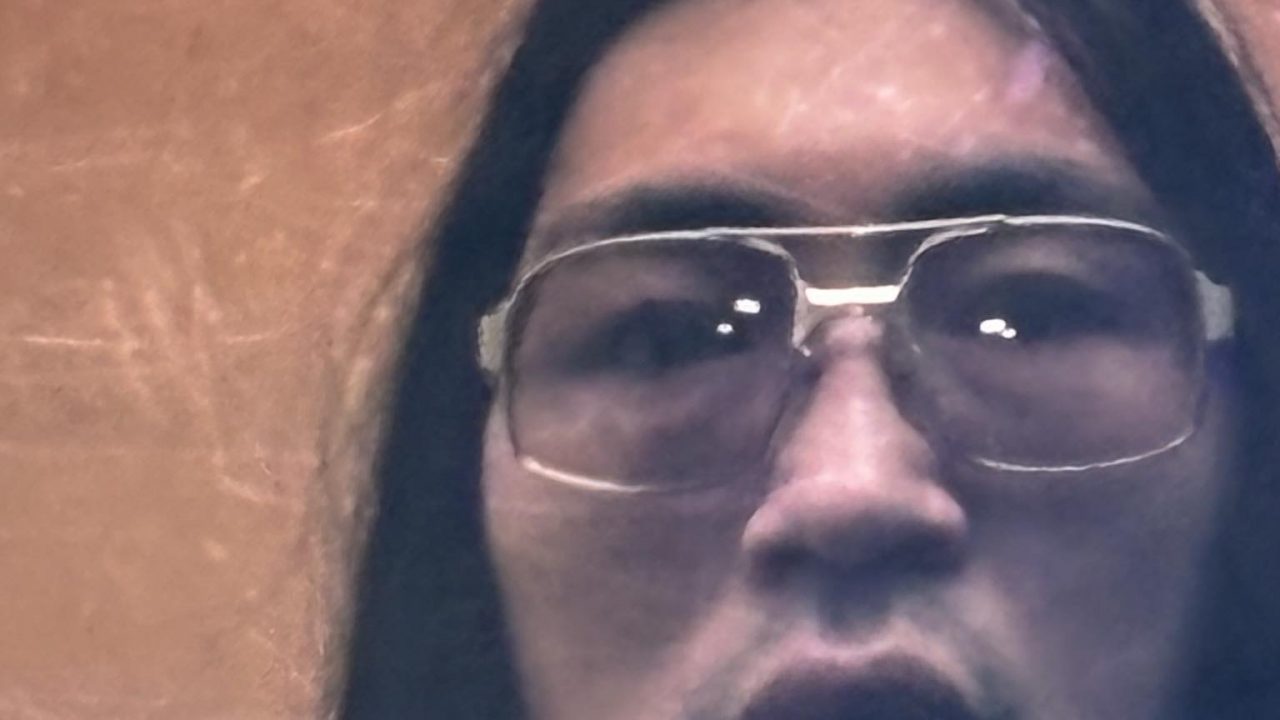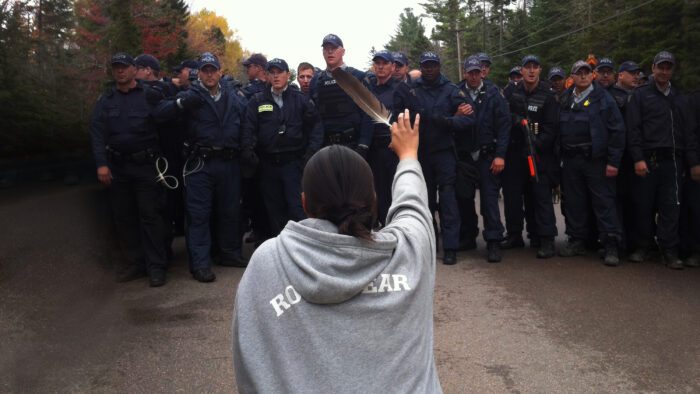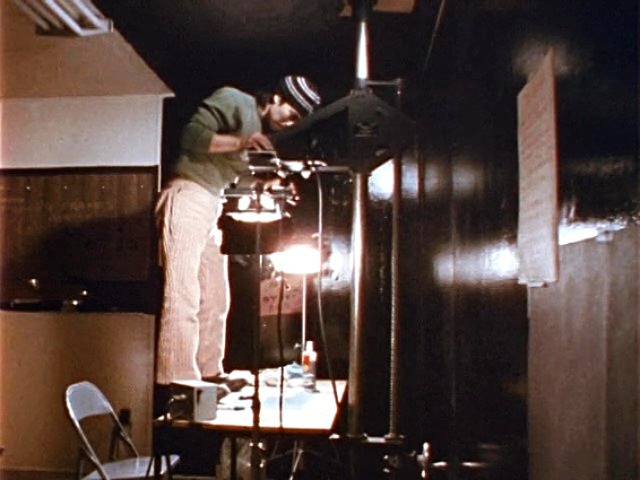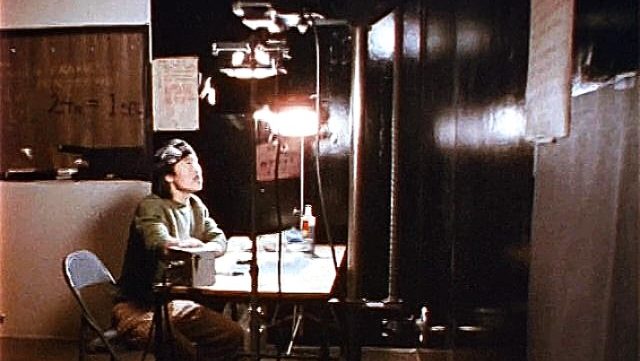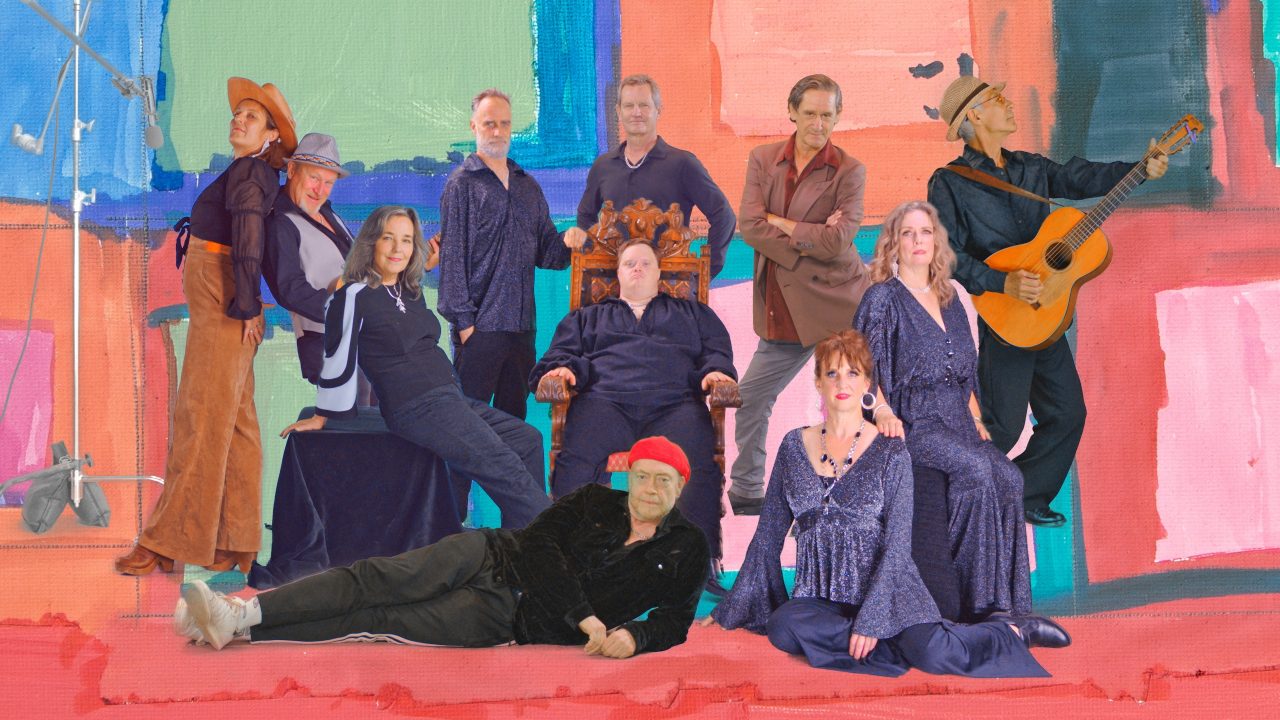
How Chosen Families and COVID Came Into Sharp Relief During Lay Down Your Heart
How Chosen Families and COVID Came Into Sharp Relief During Lay Down Your Heart
We interviewed filmmaker Marie Clements and artist Niall McNeil, the star of her film Lay Down Your Heart. They tackled the challenges of filming a people-centred film during COVID, the chosen families that often emerge within theatre communities, and the many ways art invites you to open your heart.
What can audiences expect from Lay Down Your Heart?
Marie: We are hoping that they’ll be introduced to Mr. Niall McNeil and his work. How he creates and how he has brought both his blood family and his theatre family together in this unique creation.
Niall: I think the audience will be able to see the movie, and after the film we will have a talkback about what we remember.
Have you ever been a part of a film like this one?
Niall: No, actually, I have done other films. This one is all new to me. I was in Marie’s other short film. I was in Marie’s two short films already, and I love making film. I like to work with Marie behind the scenes.
Lay Down Your Heart, Marie Clements, provided by the National Film Board of Canada
How did you two meet, and is this your first project together?
Niall: Well, let’s go back all the way to when I first met her. I met her when my aunt Paula [Danckert], which is my aunt, introduced us to Marie. She’s been a long-term friend to Marie for several years, and Paula comes to Bones of Crows, which is her film—she’s a dramaturge. So that means, I think, me and Marie are friends, we are not actually full partners. So yeah, like I said, this film, I have experience in film and I’ve got to be really patient with her [laughter], and also I was in another film called Pilgrims that Marie directed—it was me and Kevin [Loring].
Marie: I was introduced to Niall through his aunt Paula, who is in the theatre and who I have worked with closely off and on for 20 years. I met Ni and his mom, Joan. They would come to different productions that I was doing, and I started going to different productions that Niall had written and was performing in. And so we just kind of met and began to go see each other’s work, supporting each other when we had premieres and then going out for dinner and talking about our work and the people we were working with, good and bad [laughter]. And then I was casting a short film, and I cast Ni in it with Kevin Loring and Lorne Cardinal and they really did an amazing job. Sometimes Ni comes on set in early production and does paintings of what he hears in the first reads of a script. So this began a friend/family relationship.
What was it like to work together on this film?
Niall: Working on this film together was a little bit challenging. I had to be smarter, and I love working in film because I want to be professional for NFB, but I am part of the NFB for six years and I’ve been working with her since. I was her video camera takeover—his name is Mike McKinlay and he worked on The Road Forward with Marie. It’s another film I worked on with him. I did the behind-scenes documenting and using my camera, and she’s directing, and I film that way.
Marie: Yeah, Ni came and did some of the background sessions on The Road Forward, and then of course we worked with Mike McKinlay. He was our DOP on The Road Forward, but also on Lay Down Your Heart. And James Boatman was a production designer on The Road Forward and now Lay Down Your Heart, so we tend to like to work with the same crew because they are really good and it can be fun.
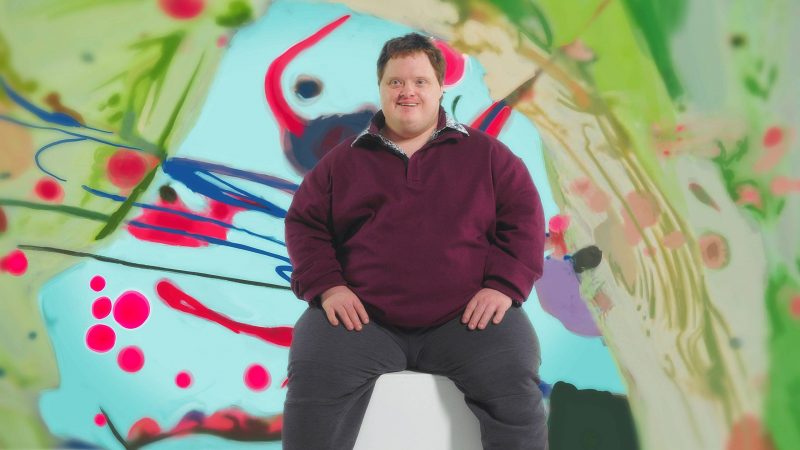
Marie, what inspired you to make this film?
Marie: Paula and I had been talking about Ni’s work, and I was thinking about his body of work that was stacking up. He’s just been creating and creating, and I thought it would be cool to ask him questions like ‘What are you creating now?’ and ‘What inspires you?’ We originally started talking about family, and then our relationship came up. And because I didn’t know some things, I asked Ni about it. He had told me early on I was his ex-wife and he was my ex-husband, and I didn’t know how that came to be.
With so many creative people on set, what was the working dynamic like on this film?
Niall: Well, it was kind of, it was really complicated at first. People in Montreal, we had to go there, Colin and Manon are friends of ours. Manon’s parents are passed away, so I become their dad. Ajneen is one of my ex-wives. It’s complicated, you know. And part of it is we talk about how I meet them, how to know them—I’ve been knowing them since 1991. I might go back to Montreal, Quebec, for my son’s 60th birthday. So yeah, it’s hard to create a family, because my parents… well, my mom is a grandma but not technically yet.
Marie: I just felt really privileged to be able to talk to everyone, and it was great to go across the country Zoom-wise and talk in a deeper way about our relationships and about how Ni creates them, how he creates with them, who they are to me and who they are not to me. Are they my son? Are they my daughter? Every day, every moment was alive, and nothing was staged. We didn’t really know what was going to happen, it just happened in the moment, and I felt it was very true to who and what we are. All of these people are extremely talented artists, but they are also really cool people. So we had a lot of fun.
Niall: Yeah, we did.
What was it like to film during the pandemic?
Niall: Oh boy! The pandemic is hurting us. During the film we had to wear masks, and I had to keep myself and she and I had to split up. Well, that’s the reason why we are doing Zoom, because Colin and Manon were on one side of the other room because we don’t want to pass any COVID. That’s why we had meetings and let people know to give space. Working in film is great, but not with the COVID.
Marie: It was a bit of work to figure out how we could do it, because we originally thought we would travel across the country—fly there, hang out and do it in person.
Niall: It was just me and Marie in the crew and not really my mother. Mom is the only caregiver I have. If we did go across country, I would be so tired.
Marie: There was a bit of joy doing it during COVID reality, because we did get to talk and we were able to see people on Zoom and create something, hopefully, that was unique to us, but also unique to the time it was. We couldn’t all be in the same room, and families love to be in the same room, so it was a gift to be able to do this.
Marie, since working with Niall and on this project, what have you taken from his family structure? Do you apply some of this openness of bringing people into your own family?
Marie: I think we’ve been lucky, growing up in theatre, to understand that having a blood family is a given, but a lot of times in theatre and film you tend to adopt people that you love. Our families grow when we recognize each other with our hearts, and I think that’s what Ni has always led with, and it is real. He told me very early on in our relationship that I was his ex-wife and that we were going to be friends. We broke up but we are still lifelong friends. And I think that’s something Ni is very clear on. He understands that better than most people I know, that relationships morph.
Niall: Yeah, that’s true, but the true part is Marie is a good friend of mine. And what’s real is Marie and I were working together, and not the other way around. I do want to work with her constantly, but right now she’s doing a TV series, Bones of Crows, and so today is the only day I can see her. And I’m not really deep in love with her—I missed her as a friend, not the “ex” parts.
Marie: Relationships change and they transition, and it doesn’t mean that our hearts are not still connected in some way as friends.
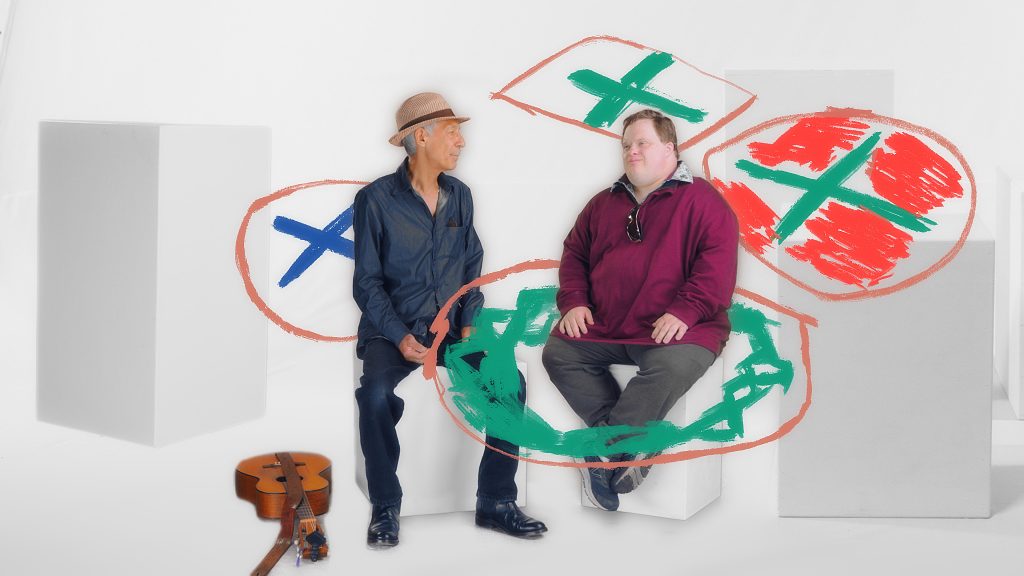
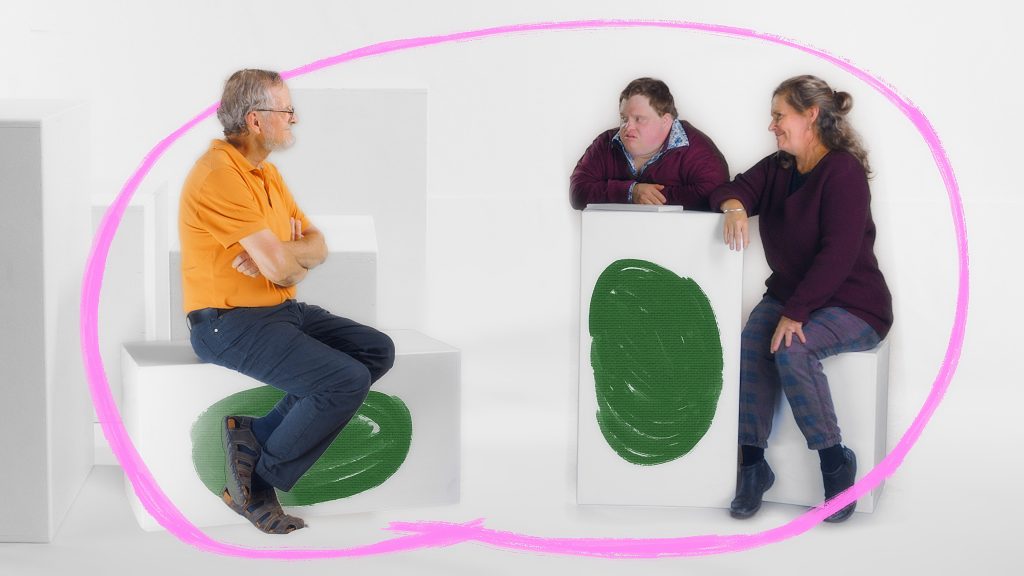
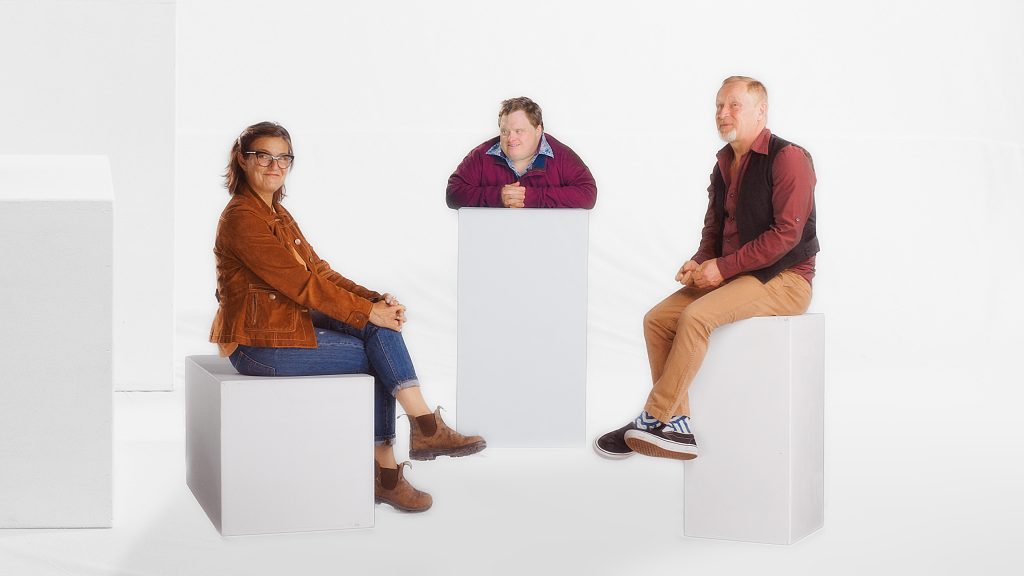
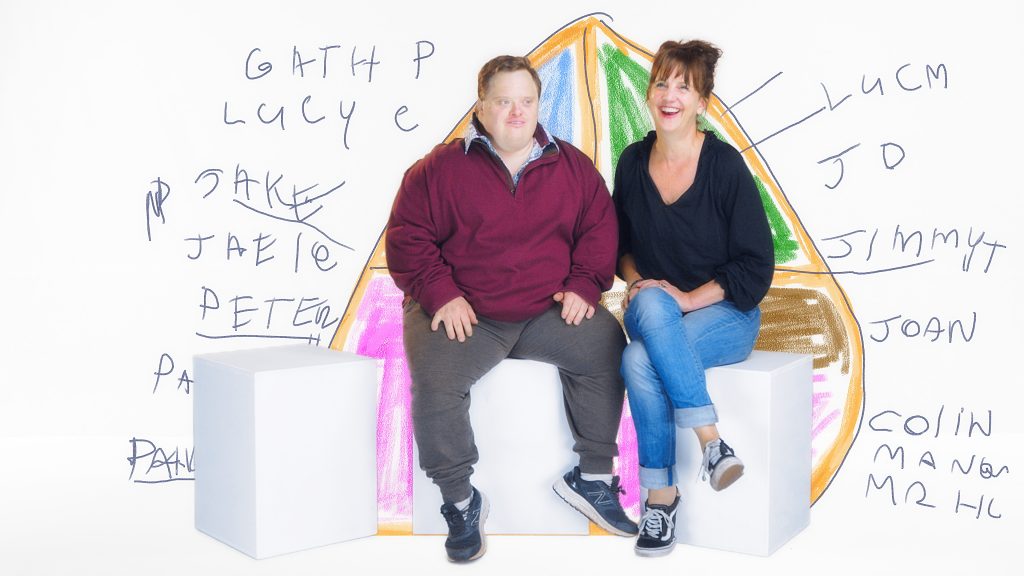
What are your plans for after the film?
Marie: He’s doing a lot of stuff—he has so much on the go.
Niall: Well, I have a composite grant for three projects. One is for Cowboy Tempest Cabaret with Lucy and I. We’ve been knowing each other since… a long time, long-term friends since 2016. We talk about what’s going on with Tempest and all that kind of stuff. That’s my project there, that’s one.
The other one is finished, it’s called The Originals. It’s a documentary and I document people who started the Caravan Farm Theatre—that’s Elia Kirby, Tallis Kirby, Sergio Kirby and Paul and Nans [Kirby]. Those five people started it up in 1971 or 1972. That’s two.
And I am doing Beauty in the Beast My Life, and it’s all about me as an artist and how I dictate my words. And I am getting a new computer pretty soon. And then I am doing a couple little clips of Vancouver as well, to document, and I am really busy. I work in a grocery store so I can’t really focus.
Going back to Lay Down Your Heart, in the very beginning, my character is kind of playing the commander and my character is sad I got shot in the brain. Do you [Marie] want to talk about that?
Marie: What I learned is that I met Ni when he came back from the war, and he had suffered a really bad wound in the head. That’s when I saw him and hopefully helped him, and then that’s when we got to know each other. He was a commander in the war.
Have you seen Lay Down Your Heart?
Niall: Yes, I think it’s really well done. I really want to see it again, but on a big screen. We need to talk to somebody who can. I want to go to everything without the COVID trouble. I was thinking the COVID-19 tests, and if we don’t have COVID that’s good and then we can travel to see people in Toronto and put up the film and go to the film festivals.
Was the film what you pictured it would be?
Niall: I think so, yeah.
What do you hope the audience takes away from the film?
Marie: I hope that people think about their own families and the families that they have created in a way that is open-hearted and without judgment. And that there is joy in recognizing people for who they are. I hope that people get to know Mr. Niall McNeill and his art work and how his process as an artist has always been this inclusion of all things—and sometimes at the same time, which offers incredible joy.
Niall: I think it’s good to have my kids will go, ‘Yeah, go Dad.’ I think it’s good to have a celebration at the premiere, and I think that may happen in Vancouver/Toronto. We didn’t talk about the travelling, but we will talk to my producer Shirley Vercruysse about if we can travel, and we need to get some papers to sign about following the rules about COVID. I want to start that so the audience can look, watch it, think, sleep on it and say, ‘Hey, well done and how can we donate? If Marie wants that or not. It’s really up to her and her company.’
Marie: What we want is people to donate us money for our next project [laughter].
What do you feel when you watch the film, Marie?
Marie: I don’t always know where we are going, but I am happy to go with him and happy to see what’s ahead. ‘What’s the possibility? What now? Where are we? What’s going to happen?’ A lot of great questions for art minds, but also that we have found a kind of home that includes what we do and who we are.
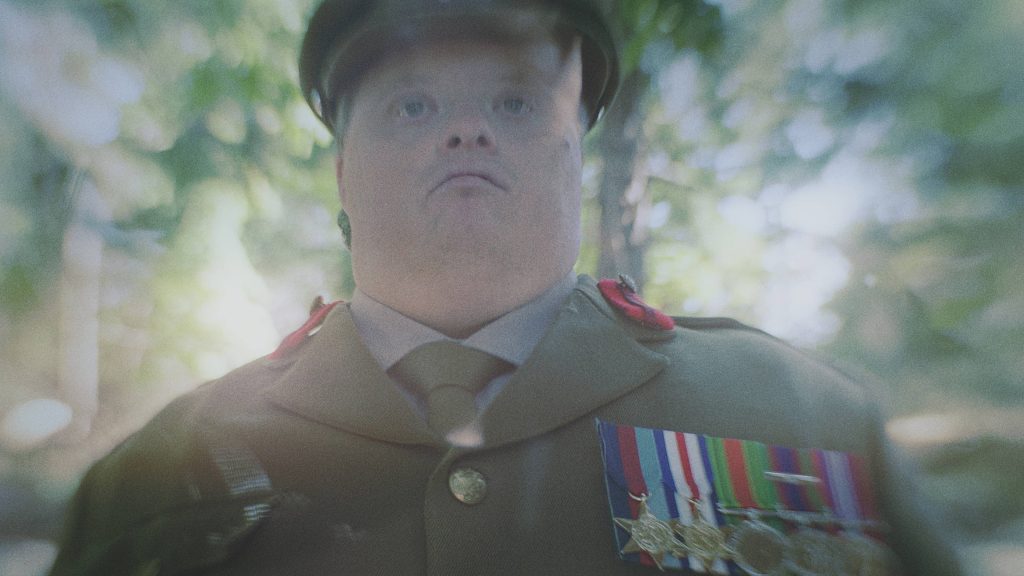
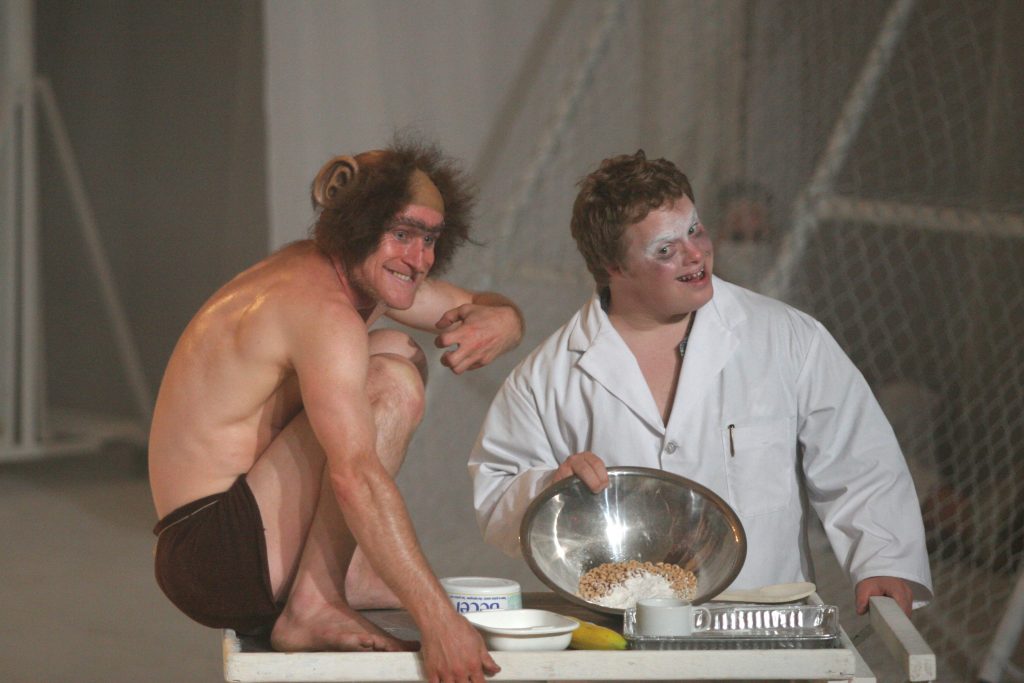
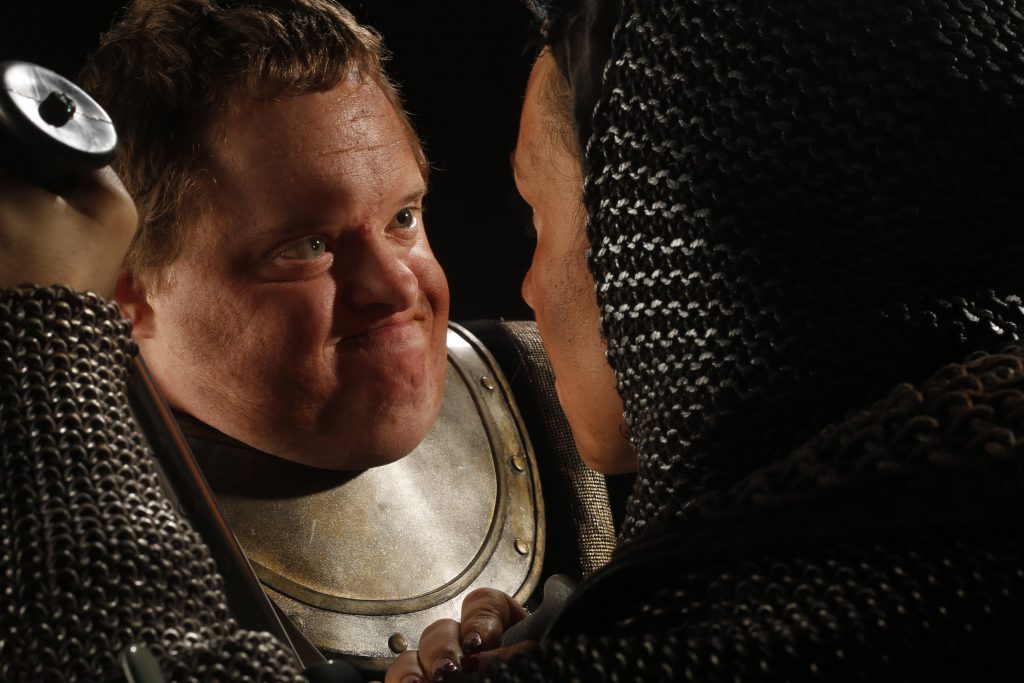

Niall, you are such a versatile artist, what’s your favourite medium?
Niall: I sometimes go into my studio and do some collage. If I did have a nap that day, I get up fresh and my head is blank and then I go to my studio. I sit for a minute and decide what should I paint and what’s my story towards the paint. It’s not just painting, it’s sketches. Instead of doing art I do filming—I have to practise that with Alex, in the morning part I might do that. Practising with hand grips, to get better with my camera for filming. And the acting part I am really good at, and I can’t remember off the top of my head what I did.
How long have you been acting?
Niall: Since I was five. The year I was born was 1982. I was born in Ottawa and all of my life my parents took me to the farm, the Caravan, since I was a little baby, until I am 40. That’s 40 years ago I was at the farm. So I am a true original Caravan kid.
What is the message of Lay Down Your Heart?
Marie: I guess what I learned from it was to be open and to receive people in our lives and let them take their place as rightful family members, because it’s simpler and more complicated and it’s often just right. That these relationships are important and come to us for a reason.
Niall, what was it like having all your family working together on this film?
Niall: My big family, my-blood related family, is my dad and his children. And he’s so far away and he’s getting older, and having family is tiring. I am going to see my dad, I don’t know what month. And my family that me and Marie made, like Steven, Lois and Colin, they’re adults now and they have their own kids, and she’s the mom, I’m the dad. And the other family, the Niall McNeil family, one of the children said, ‘Hey Dad, wanna hang out with me, Dad?’ That’s the only one word they can say—they can say my name or a parent’s name. I agree with Ms. Clements, saying earlier we should travel but it’s not safe. I have my day program tomorrow, and Mom’s coming too, from 10 to 3.
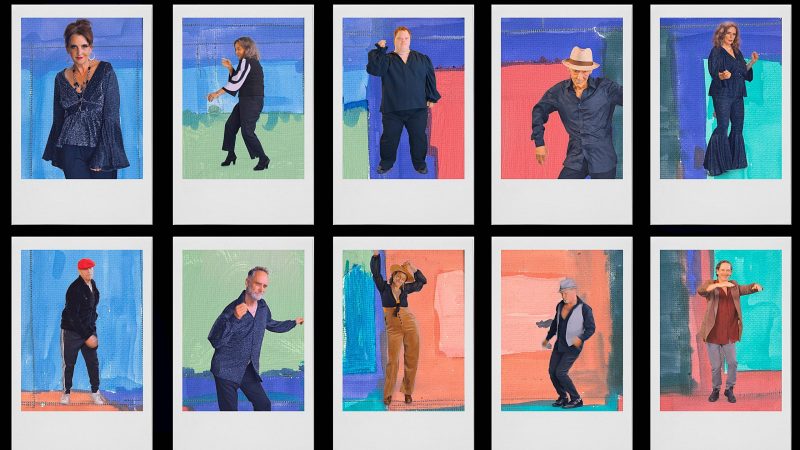
Marie, how did the film evolve from the initial idea?
Marie: Ni and I had jammed on some ideas that he was interested in talking about and looking at and investigating, and then we proposed that to the NFB. When we got into production we ran with Ni’s imagination, and so some of those original ideas are absolutely in the film, but then we went to places that we didn’t expect to. It’s representative of how artists work, how we propose things and how we change things when we are inside of it. We were true to that. The nature of it was always shifting, changing, getting bigger or brighter or weirder. So that’s really how it all evolved.
If you had to describe the film in a few words, how would you?
Marie: I love the title, because really it is suggesting that you should lay down your heart—lay it down, be open, lay down your life and see what happens. I think the title really suits it: witnessing people laying down their hearts, not being afraid to engage with each other and being open to whatever happens. How would you describe it, Niall?
Niall: Well, I love the title, I want to keep it that way. I did a script and stage production of King Arthur’s Night, with Marcus Youssef, and I named that song “Lay Down Your Heart” from the lyrics I made up for King Arthur’s Night at Neworld Theatre.
What’s next?
Niall: After the film is done, I’m going to rest. I don’t know what Marie is going to do. I think that’s good for me. I think this actually might be a kick-ass film.
